
AT the heart of phase two of York Shakespeare Project over the next 25 years is the mission to stage not only all of Shakespeare’s plays, but also the finest works of his contemporaries.
The Bard’s first rival in focus will be playwright, poet and translator Christopher “Kit” Marlowe, writer of The Tragicall History of Dr Faustus; Tamburlaine The Great; Dido, Queen Of Carthage; Edward II; The Massacre At Paris and The Jew Of Malta.
York Shakespeare Project (YSP) will stage his intimate historical tragedy Edward II (a.k.a. The Troublesome Reign and Lamentable Death of Edward the Second, King of England) under the direction of Tom “Strasz” Straszewski at Theatre@41, Monkgate, York, from October 17 to 21 at 7.30pm plus a 2.30pm Saturday matinee.
Edward II is king at last. Determined to shower his loved ones with gifts, he summons his exiled lover, Piers Gaveston, 1st Earl of Cornwall. In the face of a king, court and country intoxicated by their passions, the Queen takes her own lover, whereupon the nation is torn apart in a merciless divorce. Their child watches from the shadows, desperate to mend this broken family and nation or bring them to heel.
“Like Marlowe himself, we wanted to focus less on historical accuracy or psychological realism, and instead as a fantasia of power and love. This is a fearful England,” says the director.

Here Tom Straszewski discusses kings and queens, sexuality and social mobility, drag and cancel culture with CharlesHutchPress
What attracted you to directing Marlowe’s Edward II, Strasz?
“I’d just come off the back of directing Lincoln and York’s Mystery Plays and was looking for the next challenge. Edward II came at the perfect moment – something more intimate, but still engaging with a community cast and their own ideas for the play.
“YSP were good enough to trust me with their first non-Shakespeare play. I knew I wanted to treat it as a queer play, not just in terms of the love between Edward and Gaveston, but as something that challenges what it means to be powerful.”
How will you bring contemporary resonance to this age-old story of the struggle for love and power?
“The historical Edward II has tended to be portrayed as a weak king. He lost to the Scots, he wasn’t interested in taking over more land in France, there was a Europe-wide famine…but it’s been horribly tied to debate over his sexuality.
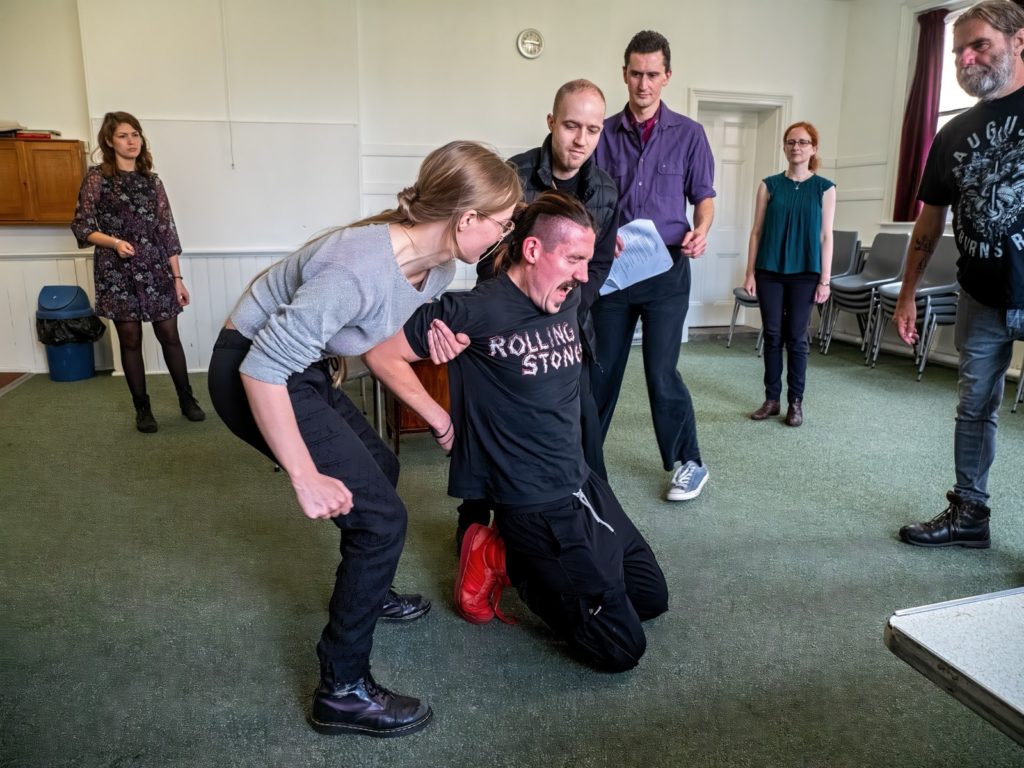
“The cast were generally wary of judging Edward by medieval standards. Did we really want to judge him for failing to conquer other countries? What we found was a king whose downfall isn’t in rejecting his love for Gaveston or failing to make war, but failure to keep his community safe.
“What’s resonated with many of us is the dramatic increase in transphobia over the last few years. Because of that, we’ve framed power and love as two ways of finding safety. For the nobles, having power lets them keep their loved ones safe. Edward protects Gaveston because he loves him, because it’s the right thing to do – whatever the cost.”
How did you bring drag into your considerations on how to present Edward II?
“It draws on the glamour of royalty. Drag queens, drag kings, it’s about finding something powerful in how you present yourself to the world. So we call our production a fantasia. A work of the imagination, of imagery and visions, rather than pure plot.
“Originally it meant ‘to shine’, and that’s something we’ve engrained in the play: a world of shining gold and dripping pearls, and the seductive shimmer of power and passion. Underneath all that are ordinary people, striving for something glorious.”
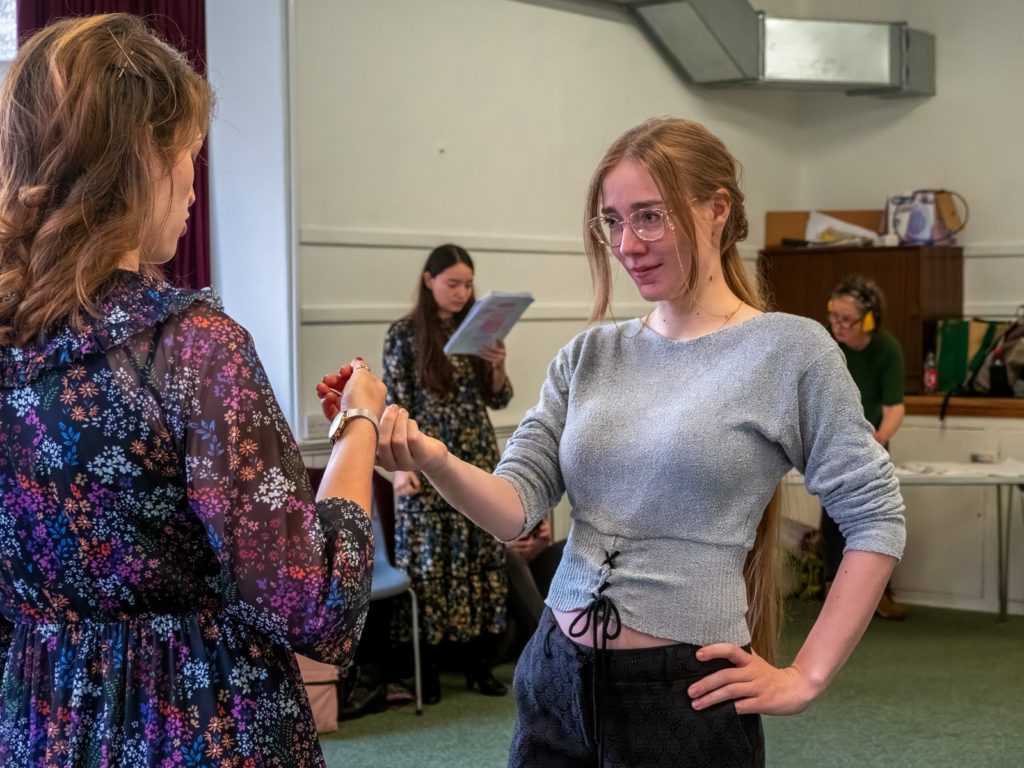
What drew you to casting YSP Jack Downey, James Lee and Danae Arteaga Hernandez in the principal roles of Edward II, Gaveston and Queen Isabel?
“When we first auditioned, we were looking for an ensemble who could all work together. We didn’t know who might be in each part, as long as they brought curiosity and bravery. As we got into the guts of the play, it became clear that James and Jack played off each other.
“There’s something of the current monarch in Jack’s portrayal – torn between his real love on one side, and the rejected wife on the other. James’s Gaveston allows Edward to be gentle, to shrug – for a moment – the weight of kingship off his shoulders.
“Danae has been a real revelation as Queen Isabel, particularly paired with Emma Scott’s Young Mortimer. She’s constantly described as weeping or mourning, but Danae’s found the power behind that.
“I’m also delighted that familiar faces have returned, often bringing something surprising, something I hadn’t seen them do before. Emily Hansen’s found a steely core in Pembroke’s moderation. Harry Summers’ Elder Mortimer gives a wonderfully tender paean to love between men, behind his desire to bash some heads in.”
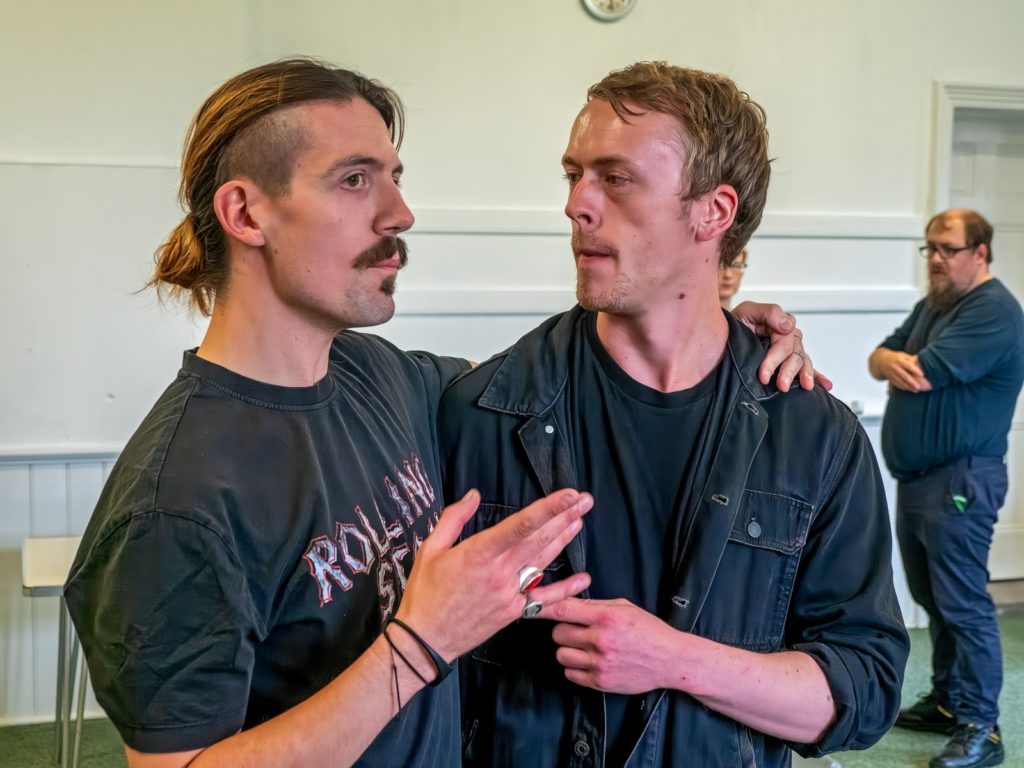
How does Jack Downey interpret Edward II?
“Jack’s Edward uses weakness as a weapon. He threatens to give his crown away, knowing nobody wants the responsibility. He’ll lie down in the middle of the stage and see if people will really dare to brutalise him. And they back down! He wins!
“Then he starts playing the game on the other’s terms: starts wars, executes his prisoners, abandons his friends for his own safety. That’s when it falls apart. “And what Emma Scott has brought to Young Mortimer is a noble who recognises this, responds to it – she doesn’t rant and bully people, but tries to lead them along with a smile (and the threat of her knife behind it).”
How are today’s issues of cancel culture, celebrity and social mobility woven into your Edward II?
“If our play is a fantasia, we looked at other forms of power and display than the monarchy – and celebrity is chief among them. How we present ourselves and who lies behind it are often different. For Gaveston, he’s met the right people, helped out his friends, risen above his poor background.
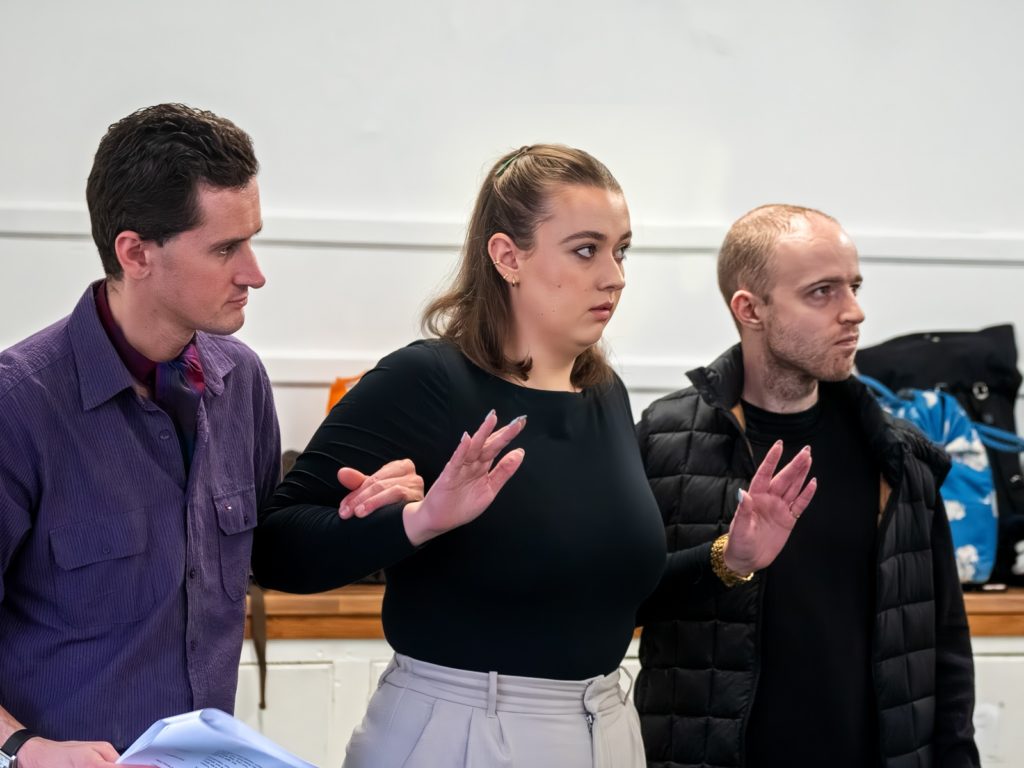
“Gaveston’s enemies don’t see it that way. His crime is not loving the king, but getting rich off it, and they don’t see what he’s done to deserve it. They’ve suffered to keep their people safe. He hasn’t.
“Gaveston and Edward fail to control the narrative, and so they lose their supporters, their fans I guess! The play constantly references the medieval wheel of fortune: if you rise, you must fall. And we can see how quickly someone can rise and fall today.”
What will the set and costume design be?
“All the actors have brought their own designs to the mix, based on their understanding of the characters. Expect to see a little Hollywood glamour, mirrored vanities, gold and pearls. Makeup as a source of power. Underneath it, the decay of the fall.”
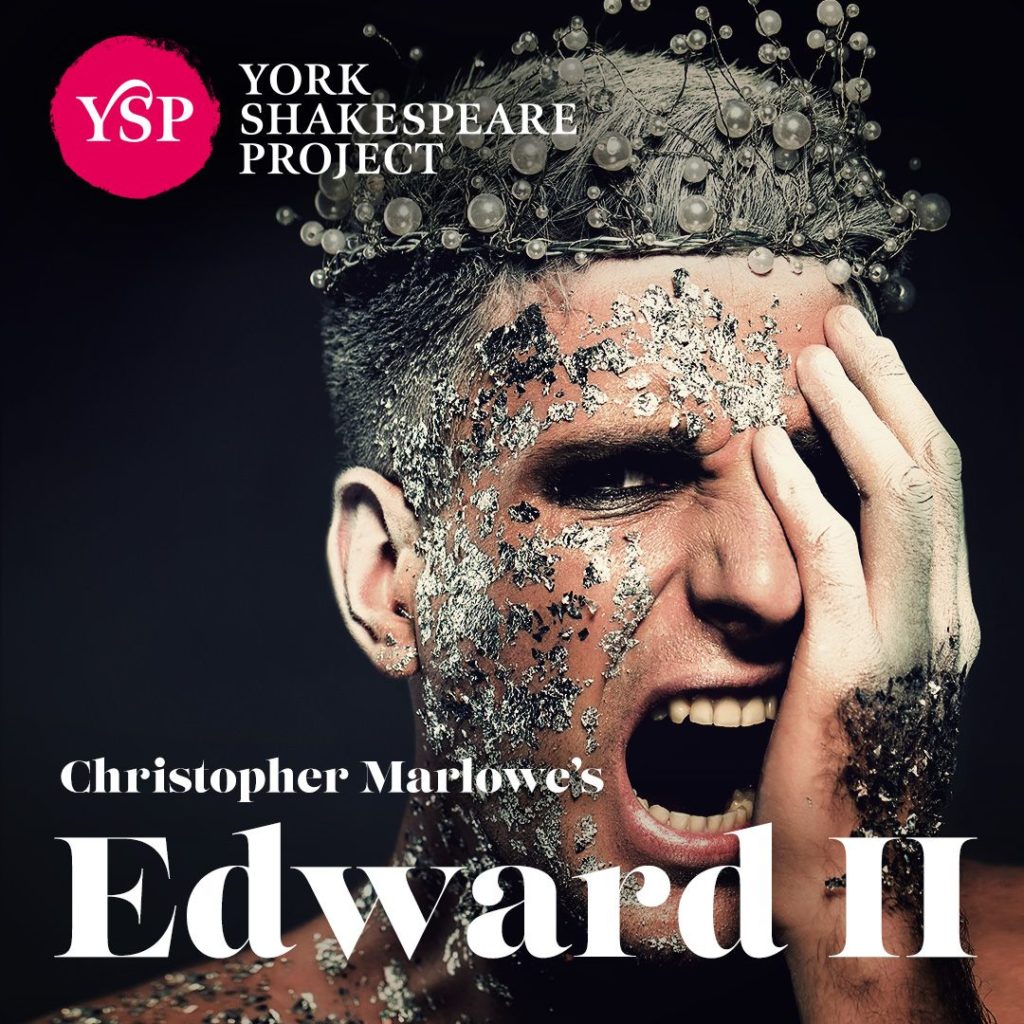
Where will music fit into your production?
“Music comes out in moments of power and desire. Serenades to the king, a power number gearing up for war, a bit of techno. We’ve drawn on what suits the moment. Each of Edward’s lovers sing to him. For example, The Ink Spots’ I Don’t Want to Set The World On Fire: its refrain of ‘Believe me’ is key to it all.”
And finally, Strasz, how do you “rate” his rival Marlowe by comparison with Shakespeare?
“You don’t! You shouldn’t! They were collaborators; they almost certainly worked on Henry VI together; there are phrases and situations that they share. Maybe Shakespeare’s later works have a certain tenderness that Marlowe’s early plays lack, but then Shakespeare had decades of experience beyond Marlowe’s death.
“Marlowe’s not interested in broad comedy, although his insults are witty. But I think he’s willing to let his lead characters let loose at the world. Shakespeare’s characters enjoy the rise to power. Marlowe’s better at the fall.”
Tickets are available at tickets.41monkgate.co.uk or by emailing the box office at boxoffice@41monkgate.co.uk.
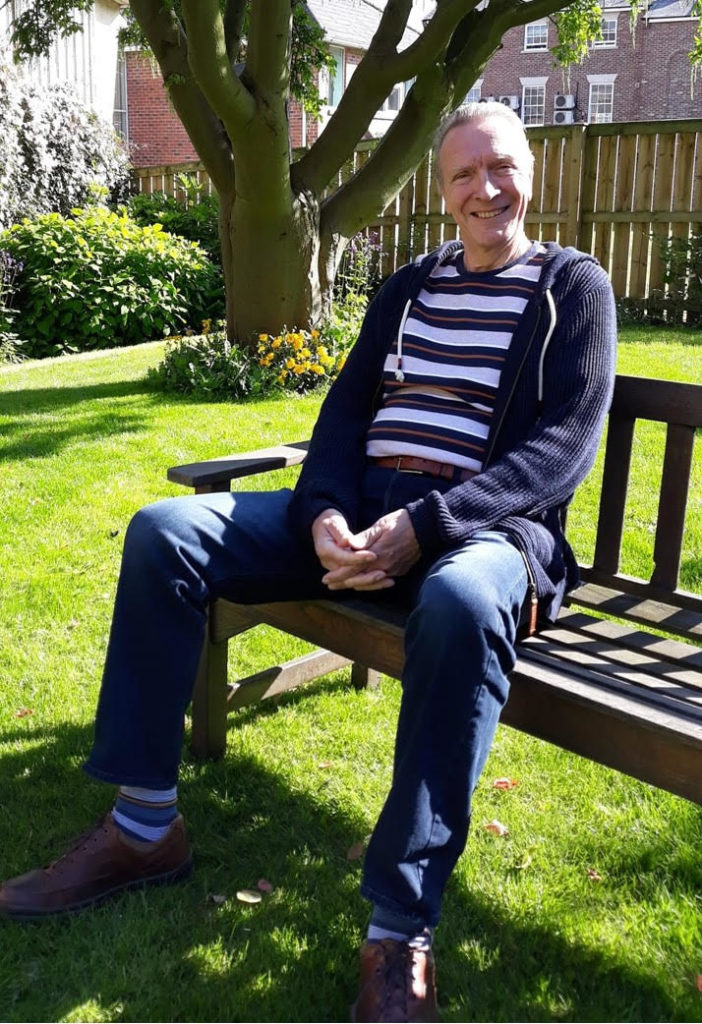
Only One Question for: York Shakespeare Project chair Tony Froud
Why will York Shakespeare Project feature works by Shakespeare’s contemporaries in its second cycle of productions?
“AS we embarked on phase two, we wanted to stretch ourselves afresh, in a way matching the great ambition of the original project’s aim (to do all the plays in 20 years). Producing all of Shakespeare’s plays again is a mighty task in itself and will offer new challenges in presenting the texts in new ways for different times.
“But we were mindful that Shakespeare did not exist in a vacuum. Many of his contemporaries were great playwrights in their own right, and there are so many exciting Elizabethan and Jacobean plays that we want to share over the next 25 years.”
